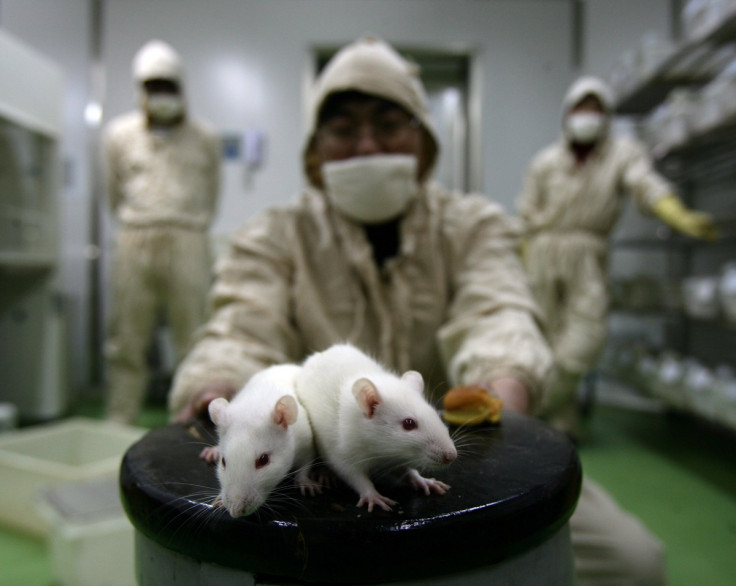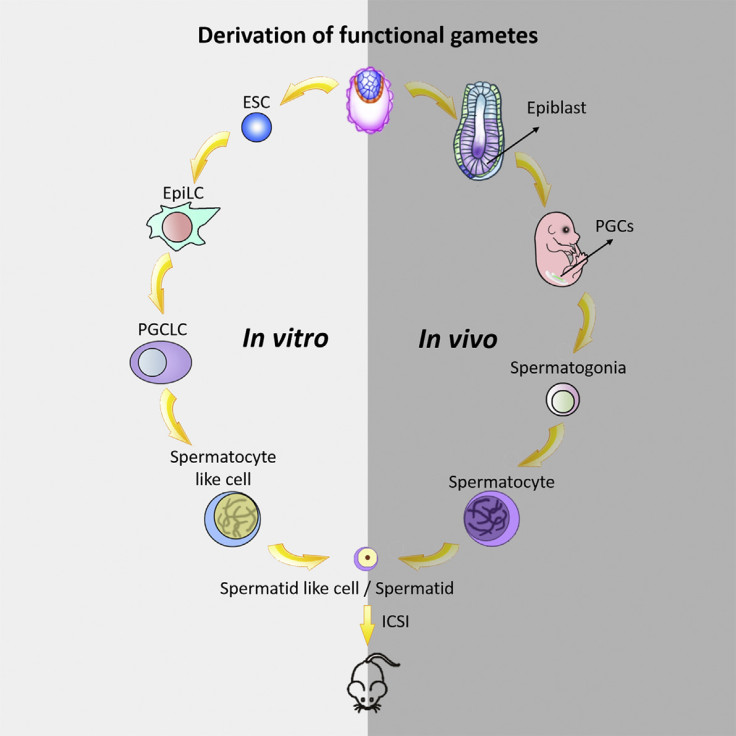Infertility treatment breakthrough: Sperm made from stem cells in lab produce offspring

A new treatment for male infertility could be on the way, as scientists have managed to genetically engineer functioning mice sperm cells from stem cells. These sperm cells were injected into egg cells and produced fertile offspring.
The research, published in the journal Cell Press, shows that stem cell research could reduce the amount of men that struggle to have children. The study used stem cells from mice to produce sperm cells in-vitro, and the researchers believe the same principle could be applied to human men.
The researchers used the sperm cells of young mice – all between two and eight years old. Each of these sperm cells underwent DNA extraction and recombination in attempt to make stem cell-derived primordial germ cells – cells that can effectively become anything that they want, but started as sex cells.
The DNA recombination allowed the stem cells to redevelop as sperm cells once again, complete with the ability of meiosis – a type of cell division. Usual IVF practices then allowed for fertile mice offspring to be made.

"Reproducing germ cell development in vitro has remained a central goal in both reproductive biology and reproductive medicine," said Jiahao Sha, a researcher working on the study from Nanjing Medical University. "We established a robust, stepwise approach that recapitulates the formation of functional sperm-like cells in a dish. We think that it holds tremendous promise for treating male infertility."
Until now, researchers have struggled to create useful sperm and egg cells in the lab – especially as certain gold-standard criteria have to be checked in the process. These include showing a normal number of chromosomes and organisation within the cells, as well as a correct nuclear DNA content.
One of the reasons that men cannot form functional sperm cells is that the cells fail to divide in the testes.
This research will not necessarily translate to humans. However, if scientists are able to recreate the results in humans, they will be able to use stem cells from infertile men to create fully functional offspring. This is because the stem cells can divide normally when cultured as a sperm cell, and can be combined with an egg to make an embryo.
"If proven to be safe and effective in humans, our platform could potentially generate fully functional sperm for artificial insemination or in vitro fertilisation techniques," said Sha. "Because currently available treatments do not work for many couples, we hope that our approach could substantially improve success rates for male infertility."
Around 15% of all couples suffer from the inability of having children, and roughly a third of these cases are due to the male. In the UK, it has been estimated that 2.5 million men could suffer from infertility.
© Copyright IBTimes 2025. All rights reserved.






















